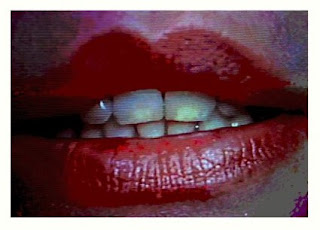Gouache, watercolour and pencil on paper
(48 x 31 cm)
'I do not deny that I have made drawings and watercolours of an erotic nature.
But they are always works of art.' - ES
I.
I have already shared my thoughts on Herr Schiele as grand Austrian pervert and as someone who didn't treat poor Wally Neuzil very kindly: click here and here respectively.
But, having just returned from an exhibition at the Omer Tiroche Gallery featuring some of Schiele's portraits on paper produced during the period 1910-1918, I thought it might be a good time to say something additional on a figure whose work remains almost as startling now as when first shown.
As it says in the exhibition press release:
"The featured works [...] showcase Schiele's
remarkable ability to capture and explore the raw emotion and
vulnerability of his subjects, pushing the boundaries of modern
portraiture with unparalleled intensity and insight." [2]
Whether we might describe these depictions of the human figure as poignant, however, is debatable.
For personally, I think of poignancy as a fairly gentle (and often unintended) stirring of emotion that is very much an individual response; something usually triggered with but a pin prick of detail (Barthes refers to this as the punctum).
Schiele's pictures are, in their unparalleled intensity, just a little too full-on and violently assault the viewer; almost one feels stabbed in the heart. That's not a criticism. It's simply to challenge the use of the term poignant to describe his depictions of the human figure; provocative and a little grotesque, certainly, even at times a little obscene, but poignant ... I think not (or at least: not to me).
II.
And by obscene, just to be clear, I refer to a transparent staging of desire; to the way that the above figure, named Moa (an Old Norse word for mother), is overwhelmingly present making it impossible to ever step back and view her with perspective or objectivity (the gaze has been eliminated).
In other words, just as there's no poignancy in Schiele's picture, there's no trace of seduction; the veil is rent, the curtain lifted, and everything is explicit and in your face or made shamelessly hypervisible, as Baudrillard would say [3].
It may be going too far to say that Schiele violates his (often very young) models, or that we as viewers are made complicit in a crime of some kind, but, there's definitely something illicit (and troubling) going on here; way beyond anything produced by his mentor Gustav Klimt.
Does the fact that Schiele's work is obscene also make it pornographic?
Possibly: the judge who sentenced him to jail for a month in 1912 for public immorality and had one of his works burnt certainly thought so; and the writer of the gallery press release also doesn't hesitate to say that his portraits were, at times, "bordering on the pornographic" [4].
But it's a word that is too closely tied to sexually explicit material and thus detracts from the philosophically more interesting concept of obscenity as briefly discussed above, so it's not one I would choose to use here.
III.
This small exhibition of 14 works is absolutely worth going to visit if you have the chance. It runs until 2 May at Omer Tiroche; a Mayfair gallery, founded in 2014, which specialises in art from the modern, post-War, and contemporary periods.
And speaking of current London exhibitions well worth checking out ... click here for a post on Joan Miró: Monumental Printmaking at Shapero Modern (6 Mar - 4 May 2025).
Notes
[1] Moa (1911), is one of a series of portraits Schiele painted of his friend
and cabaret dancer, Moa Mandu. Interestingly, she was the only model he ever identified by name. Unfortunately, not much is is known about Moa, other than the fact she was originally from Bosnia, had large and very beautiful dark eyes. It is believed she was introduced to Schiele by fellow painter (and mime artist) Erwin Osen.
[2] From the press release for Egon Schiele: Portraits on Paper
(14 Feb - 2 May 2025) at the Omer Tiroche Gallery, 21 Conduit St, London, W1. This text can be read in full on the gallery's website: click here.
[3] My undersanding of what constitutes the obscene is informed by Baudrillard's thinking on this concept. For him, ob-scenity extends beyond the realm of
sexuality, encompassing the visual field and the transparency of
knowledge and he refers not only to that which usually takes place offstage, but to that which is also against-scene, undermining the
conditions necessary for meaning to emerge, thus making it unthinkable.
See what Baudrillard writes on the obscene in Passwords, trans. Chris Turner (Verso, 2003), pp. 25-29. And see also the entry by Paul A. Taylor on the obscene in The Baudrillard Dictionary, ed. Richard G. Smith (Edinburgh University Press, 2010), which can be read online by clicking here.
[4] From the press release for Egon Schiele: Portraits on Paper ... click here.






